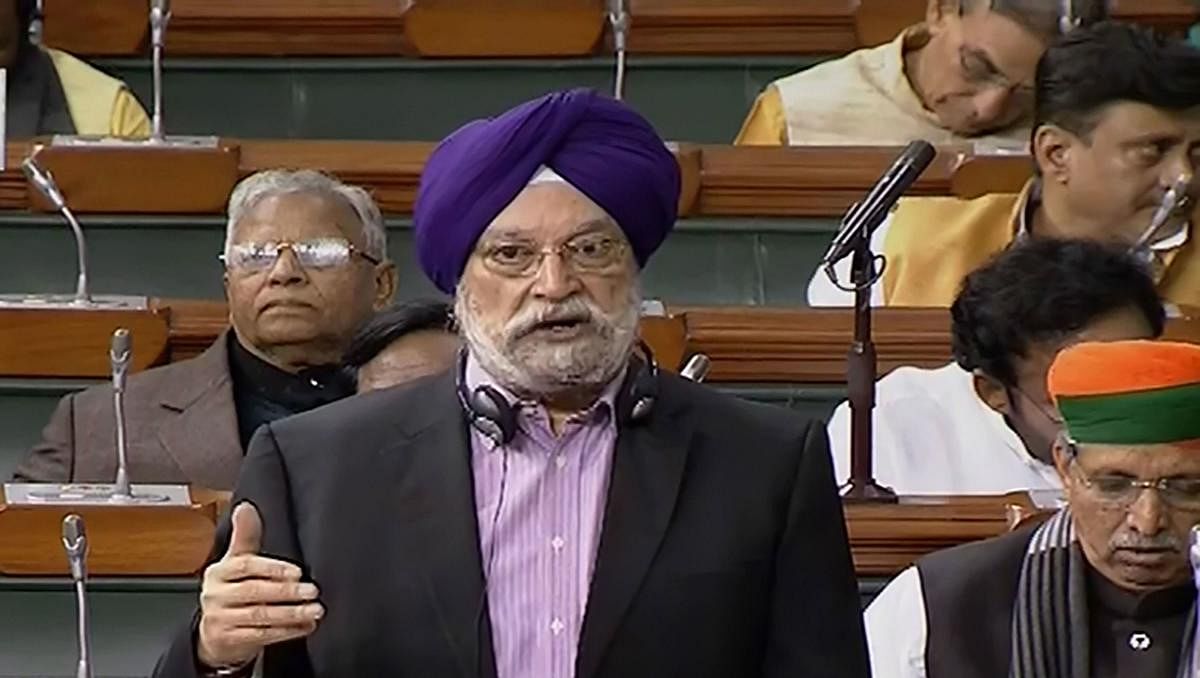
In a bid to improve India's aviation safety ratings, the government on Tuesday moved amendments to the Aircraft Act, 1934 to provide statutory status to regulatory institutions, including the Directorate General of Civil Aviation (DGCA).
The International Civil Aviation Organization (ICAO) has suggested for proper recognition to the aviation regulators.
Moving the Aircraft (Amendment) Bill, 2020 for discussion and passage in Lok Sabha, Civil Aviation Minister Hardeep S Puri said there was a need to provide statutory backing to the DGCA, Bureau of Civil Aviation Security (BCAS) and the Aircraft Accident Investigation Bureau (AAIB) as these bodies were set up under executive order.
He assured Lok Sabha that the aviation sector would emerge out of the current challenges posed by the coronavirus outbreak, which forced countries around the globe to impose travel restrictions.
The Bill also provides for keeping aircraft belonging to the country's armed forces outside the purview of the Aircraft Act, 1934.
The Bill also proposes to increase the fine amount for violations of new rules from Rs 10 lakh to Rs 1 crore.
Participating in the debate on the Bill, M K Vishnu Prasad of the Congress said cases of "near miss" in the skies have increased many folds in the recent years.
Therefore, there is a need to augment human resources at air traffic controls to avoid mid-air collisions, he said.
Prasad also opposed the proposed sale of the national carrier Air India, saying this government is selling "family jewel" to manage its expenses.
Praising the effort of Air India during the evacuation of Indians from the coronavirus-hit China, he said that no private airline, other than the national carrier, came forward to carry out the job.
Speaking on the Bill, Jayant Sinha of the BJP said the statutory status to DGCA, AAIB and BCAS will improve India's safety ranking by ICAO and other international organisations.
It will also help promote the aviation sector of the country, Sinha said.
Other key proposals include increasing the fine amount from Rs 10 lakh to Rs 1 crore for violations of new rules, empowering BCAS or any authorised officer to issue directions, having designated officers for adjudging penalties, and introducing a provision for compounding of offences.
Generally, compoundable offences are those which can be settled by paying certain amount of money.
It would also bring regulations of all areas of air navigation services under the Act.
The Act has provisions for securing the safety of aircraft operations in India and carrying out civil aviation operations as per standards, procedures and practices laid down by ICAO.
ICAO audits, conducted in 2012 and 2015, have indicated a need to amend the Act to give proper recognition to the aviation regulators.
Among others, the audits had suggested enhancing the "maximum quantum of fines and to empower the departmental officers to impose financial penalties on individuals or organisations involved in violations of the legal provisions".